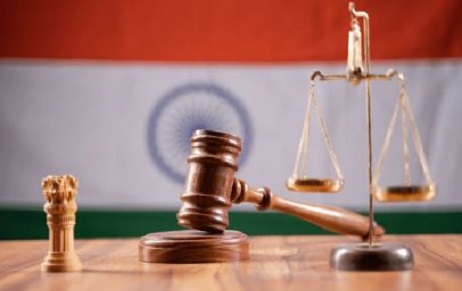ABSTRACT The project employs doctrinal research methods, i.e. secondary research which involves writing on basis…
Misconceived interpretation of Section 7, POCSO
Introduction
The POCSO Act seeks to punish people involved in sexual offenses against children and is a gender-neutral law, that is it recognizes both girl and a boy can be victims of sexual offenses unlike Section 354 of the Indian Penal Code which only recognizes offenses against women. It not only comprehends penetrative sexual assault but nonpenetrative and aggravated sexual assault as well. The Act not only applies to physical assaults but also extends to offenses that happen over the internet. It includes possession of Child Sexual Abuse Material (CSAM), using of children for the purpose of creating CSAM, or exposing children to pornography or CSAM. The POCSO Act has a more stringent punishment for sexual assault in comparison to the punishment provided under Section 354 of the Indian Penal Code.

- Their statement can be recorded at their home or a place of their choice preferably by a woman officer or an official not below the rank of sub-inspector.
- The child should not come in contact with the accused during the period of investigation.
- The child should not be detained in a police station at night and his/her identity should be protected from the public and media unless directed otherwise by a Special Court.
- If the survivor is a girl, a medical examination should be done in the presence of her parents or a person she trusts, if neither of them is available then the medical examination should be done in the presence of a woman nominated by the head of the medical institute.
A recent judgment of a single-judge bench of the Bombay High Court (at Nagpur) in Satish s/o Bandu Ragde Versus The State of Maharashtra, held that contact without skin to skin touch would not amount to sexual assault within the purview of Section 7 and was not punishable under Section 8 of the POCSO Act.
Section 7 of the Act states that whoever, with sexual intent touches the vegina, penis, anus, or breast of the child or makes the child touch the vegina, penis, anus, or breast of such person or any other person, or does any act with sexual intent which involves physical contact without penetration is said to commit sexual assault. In the present case the accused pressed the child’s breast without removing her top and according to the bench, since the accused did not remove the girl’s top and there was no skin to skin touch, it did not amount to any contact and did not come under the pretext of sexual assault. However, the bench stated that pressing the girl’s breast will fall within the ambit of Section 354 of the Indian Penal Code which criminalizes outraging the modesty of women. Section 7 of the Act that is sexual contact without penetration has a punishment for imprisonment of not less than 3 years which may extend to 5 years and fine (Section 8) while on the other hand, Section 354 of IPC penalizes the assault only for a period of 1 year. It is indeed a polemic judgment that overlooked the juxtaposition of Section 7 of the POCSO Act and Section 354 of IPC. Even though there was not a detailed analysis of whether the accused removed the top of the 12-year-old girl or not and pressed her breast from over her top does not mean there was no sexual assault. Section 7 of the Act clearly acknowledges that any act done without penetration will amount to sexual assault, it need not be clarified that there should be skin-to-skin contact.
Conclusion
According to data provided by the National Crime Record Bureau, a total of 109 children were sexually abused every day in the year 2018. With the increase in offenses against children, it was felt that there was a high and mighty need for protecting children. The POCSO Act was enacted to provide special protection and provisions to children but over time there have been many instances where these laws were put in an obsolete position. The Kathua rape case is one such example, an eight-year-old girl was gang-raped and killed by eight accused among whom one was a minor. The minor accused was tried by a juvenile court and was not awarded any stringent punishment. Other accused were also provided with only 3 to 5 years of imprisonment. Even though the accused are being castigated, there seems to be a loophole in punishment for sexual offenses.
After the increase in cases, many measures have been taken to inhibit these offenses, and recently the parliament has asked the government to consider reducing juvenile delinquency age to 16 years under the POCSO Act. It is noted that there have been a large number of cases under the POCSO Act where the age of juvenile offenders is less than 18. This should be rectified so that the minor sexual offenders should not be left untreated. With the accrual of such scenarios, it is important to understand the laws thoroughly as Section 7 of the POCSO Act was misconceived by the Mumbai High Court.
Author: Swarnima Arya, a student of the Faculty of Law, University of Delhi, an intern at IIPRD. In case of any queries please contact/write back to us at aishani@khuranaandkhurana.com.



